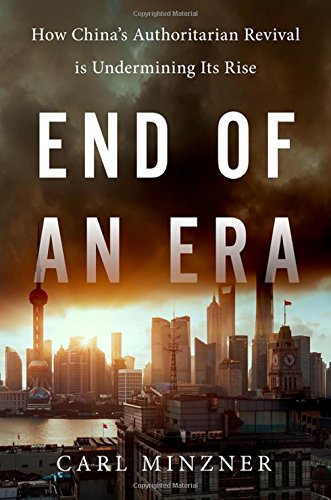

Most ebook files are in PDF format, so you can easily read them using various software such as Foxit Reader or directly on the Google Chrome browser.
Some ebook files are released by publishers in other formats such as .awz, .mobi, .epub, .fb2, etc. You may need to install specific software to read these formats on mobile/PC, such as Calibre.
Please read the tutorial at this link. https://ebooknice.com/page/post?id=faq
We offer FREE conversion to the popular formats you request; however, this may take some time. Therefore, right after payment, please email us, and we will try to provide the service as quickly as possible.
For some exceptional file formats or broken links (if any), please refrain from opening any disputes. Instead, email us first, and we will try to assist within a maximum of 6 hours.
EbookNice Team

Status:
Available5.0
34 reviewsSince the 1990s, Beijing's leaders have firmly rejected any fundamental reform of their authoritarian one-party political system, even as a decades-long boom has reshaped China's economy and society. On the surface, their efforts have been a success. Political turmoil has toppled former Communist East bloc regimes, internal unrest overtaken Middle East nations, and populist movements risen to challenge established Western democracies. China, in contrast, has appeared a relative haven of stability and growth.
But as Carl Minzner shows, a closer look at China's reform era reveals a different truth. Over the past three decades, a frozen political system has fueled both the rise of entrenched interests within the Communist Party itself, and the systematic underdevelopment of institutions of governance among state and society at large. Economic cleavages have widened. Social unrest has worsened. Ideological polarization has deepened.
Now, to address these looming problems, China's leaders are progressively cannibalizing institutional norms and practices that have formed the bedrock of the regime's stability in the reform era. Technocratic rule is giving way to black-box purges; collective governance sliding back towards single-man rule. The post-1978 era of "reform and opening up" is ending. China is closing down. Uncertainty hangs in the air as a new future slouches towards Beijing to be born. End of an Era explains how China arrived at this dangerous turning point, and outlines the potential outcomes that could result.